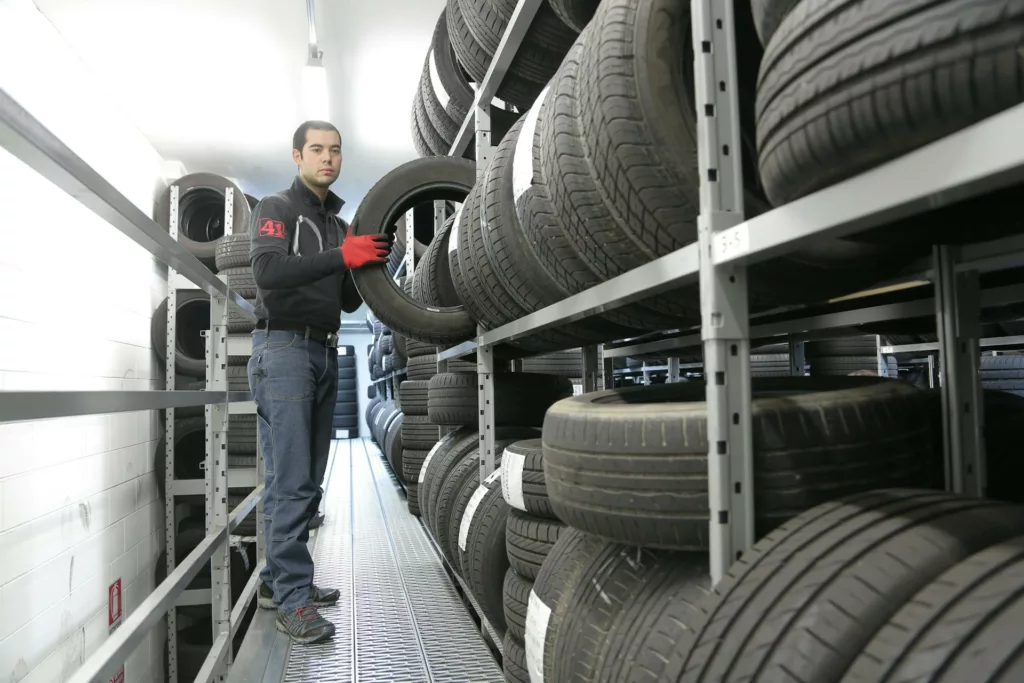
Important Thing To Know About Tyres

One of the most crucial components while operating a vehicle is its Tyres Coventry. They keep the automobile moving and in contact with the pavement. Sadly, they are also one of the parts of an automobile that get the least attention. It’s critical to look after your tyres. In the post we have today, we discuss information on your tyres that you should be aware of.
1. Tread Depth
The tread depth is crucial for maintaining traction and handling. Check your tyres regularly for sufficient tread depth using a tread depth gauge. In many countries, the legal minimum tread depth is typically around 1.6 mm, but it’s recommended to replace tyres before they reach this limit. Adequate tread depth is essential for proper traction, especially on wet or slippery surfaces. Check the tread depth regularly and replace your tyres if they get worn beyond the legal limit or show signs of uneven wear.
2. Tyre Pressure
Proper tyre inflation is vital for safety, fuel efficiency, and tire longevity. Check your tyre pressure regularly, preferably when the tyres are cold, using a reliable pressure gauge. It’s essential to keep your tyres inflated properly for handling, safety, and fuel economy. Check your tyre pressure regularly and ensure it matches the recommended level specified by the vehicle manufacturer. Refer to the vehicle manufacturer’s recommended tyre pressure, usually found in the owner’s manual.
3. Tyre Wear Patterns
Examine your tyres for any irregular wear patterns. Uneven wear may indicate alignment issues, incorrect tyre inflation, or suspension problems. If you notice unusual wear, have your tyres and vehicle inspected by a professional.
4. Alignment
Proper wheel alignment helps maintain even tyre wear and ensures that your vehicle handles correctly. If you notice uneven tyre wear or the vehicle pulling to one side, have your alignment checked by a professional.
5. Balancing
Balancing your tyres minimizes vibrations and promotes even tyre wear. Whenever you install new tyres or experience vibrations while driving, have your tires balanced by a qualified technician.
6. Tyre Rotation
Regular tyre rotation helps ensure even wear on all tires, prolonging their lifespan. Consult your vehicle’s owner’s manual for the recommended rotation pattern and intervals. Your tyres’ lifespan will get extended and even wear will be also ensured with regular rotation. For advice on the required rotation pattern and interval, refer to your vehicle’s owner’s handbook.
7. Sidewall Damage
Inspect the sidewalls for cuts, bulges, cracks, or any other signs of damage. Damaged sidewalls can weaken the tyre’s structure and increase the risk of a blowout. If you notice any damage, have the tire inspected or replaced promptly? Inspect your tyres for cuts, bulges, or other signs of damage on the sidewalls. Damaged sidewalls can weaken the tyre’s structure and pose a safety risk.
8. Age of Tyres
Tyres have a lifespan, even if they appear to have sufficient tread. Rubber deteriorates over time, and tyres older than six years may become more prone to failure. Check the tyre sidewalls for a four-digit DOT (Department of Transportation) code that indicates the tire’s manufacturing date.
9. Load Capacity
Each tyre has a specific load-carrying capacity. Make sure your tyres are capable of supporting the weight of your vehicle and any additional loads you may be carrying. Refer to the tyre’s load index rating, which is typically found on the sidewall. Each tyre has a specific load-carrying capacity. Ensure that the tyres on your vehicle can safely support the weight of your vehicle and any additional loads you may be carrying. Check the load index rating on the tyre sidewall for guidance.
10. Speed Rating
Tyres are basically designed to handle specific speeds safely. The speed rating, represented by a letter on the sidewall, indicates the maximum speed at which the tyre can operate. Ensure that your tyres have a speed rating suitable for your driving habits and the legal speed limits in your area. The speed rating, indicated by a letter on the sidewall, represents the maximum speed at which the tire can operate safely. Make sure your tyres have a speed rating suitable for your driving habits and the legal speed limits in your area.
11. Seasonal Tyres
Consider using seasonal tyres, such as winter or summer tyres, depending on the climate and driving conditions you typically encounter. These specialized tyres are always designed to provide improved performance and safety in specific weather conditions.
12. Tyre Repair
If you encounter a puncture or damage to a tyre, it’s essential to assess whether it can be safely repaired. Some punctures can get fixed, but others may require tire replacement. Consult a professional tyre service provider to determine the best course of action.
13. Tyre Age
Tyres deteriorate over time, even if they have sufficient tread. Check the four-digit DOT code on the sidewall to determine the tire’s manufacturing date. If your tyres are older than six years, consider having them inspected by a professional to assess their condition.
Remember to consult your vehicle’s owner’s manual and seek advice from Performance Tyres Coventry professionals to ensure you are following the manufacturer’s recommendations and maintaining your tyres properly. Regular inspections and maintenance will help keep your tyres in good condition, ensuring optimal safety and performance on the road.